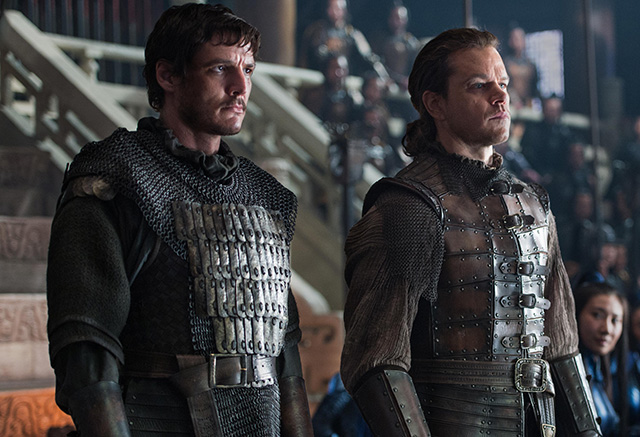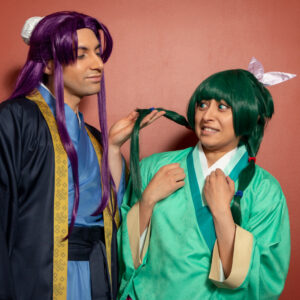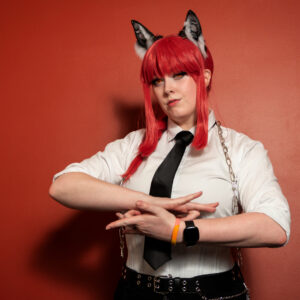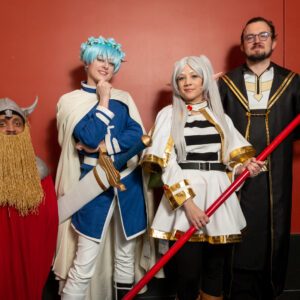The Great Wall Is Less Great, More ‘Meh’

The early 21st Century in the film industry has had a very strong ongoing debate about the whitewashing of various aspects of Asian culture, from the cancelled potential train wreck that was Hollywood’s attempt at Akira, to The Last Samurai which was heavily reliant upon the infamous “White Savior” trope. With an outcry for diversity in cinema, it is extremely difficult to discern a filmmaker’s intent at face value; such was the case with my initial impression of The Great Wall. I took this movie as the latest installment of the “let’s imitate Dances with Wolves,” however after watching it, I can assure anyone intrigued by this Zhang Yimou work that such is not the case.
Below is the spoiler-free review, telling you little more than you could glean from trailers and commercials.
[divider]
The Great Wall is set during the Song dynasty under the reign of the Renzong Emperor. Without getting into spoiler territory, William (Matt Damon) and Tovar (Pedro Pascal) are part of a mercenary group searching for black powder. Near the Great Wall the encounter some sort of monster, and later become involved with Chinese soldiers of a secretive military sect led by General Shao (Zhang Hanyu) and Strategist Wang (Andy Lau) and Commander Lin (Jing Tian). Later still, William and Tovar meet Sir Ballard (Willem Dafoe), a European who, like them, had ventured east twenty-five years ago in search of black powder.
The rest of the movie revolves around all of them fighting to hold the Great Wall against many more of the monsters they encountered. And as you’ll see, that simplicity is a problem, all the more so coming from a filmmaker famous for complex characters and stories.
Beautiful imagery
The Great Wall‘s most profound strength is its visuals; Zhang Yimou has quite the reputation for cinematography and the use of colors, stunt choreography, costuming, sets, and even computer animation are a testament to the man that brought us The House of Flying Daggers, Hero and Curse of the Golden Flower.
I also appreciated that this was not a martial arts heavy film; Yimou took extra care not to be excessive with wire work, allowing the narrative to flow and make this film more about the characters. I found it refreshing to see almost no expository dialogue, and it made for a much more enjoyable experience.
The side characters in The Great Wall definitely stole the show, from the wet-behind-the-ears enthusiasm of Lu Han as Peng Yong as an unskilled soldier, to Willem Dafoe’s self-centered cowardice as Ballard, Andy Lau as the sensible Strategist Wang, and especially Pedro Pascal’s roguish charm as Tovar. Pascal was easily the most charismatic actor on screen, and when coupled with Dafoe, the two had amazing chemistry.

Sadly, the same for could not be for the two leads — the performances by Jing Tian and Matt Damon performances were as bland as plain tofu. Tian does her best given the fact that she is essentially the only actress with a major role, and to her credit she does shatter the Smurfette Principle by ascending in rank and being trusted as an equal. However, she is not particular dynamic on screen — if you are looking for Imperator Furiosa, you will be sorely disappointed.
Damon was not cut out for this role; he was casted as a lovable rogue seeking redemption and played it as a milquetoast everyman. His delivery was fine, it is not a question of whether or not he can act, but instead a matter of him being ungodly forgettable. Add to that the fact that he was walking exposition, and you have a recipe for boredom. He tells you about his life and what he’s done, but you never see it, nor will you believe it, and it was a waste of his talent and what could have been a truly compelling character.
The Great Wall‘s other weakness was its overall story structure; I never got a real feeling of purpose behind the movie’s narrative. Things happened, and then they ended; there was talk of stealing gun powder, allusions to backstories, a few chuckle-worthy moments and a lot of wasted potential.
And wasted potential is the keyword here — The Great Wall tried its hardest to be a bombastic fantasy epic, with franchise potential. Unfortunately, it holds itself back, from the casting of its primary protagonists to the lack of a coherent plot.
The Great Wall (Legendary East, PG-13, 1 hour, 43 minutes) is definitely a “Netflix if you have 90 minutes to spare” kind of flick, and I give it a 5 out of 10.



